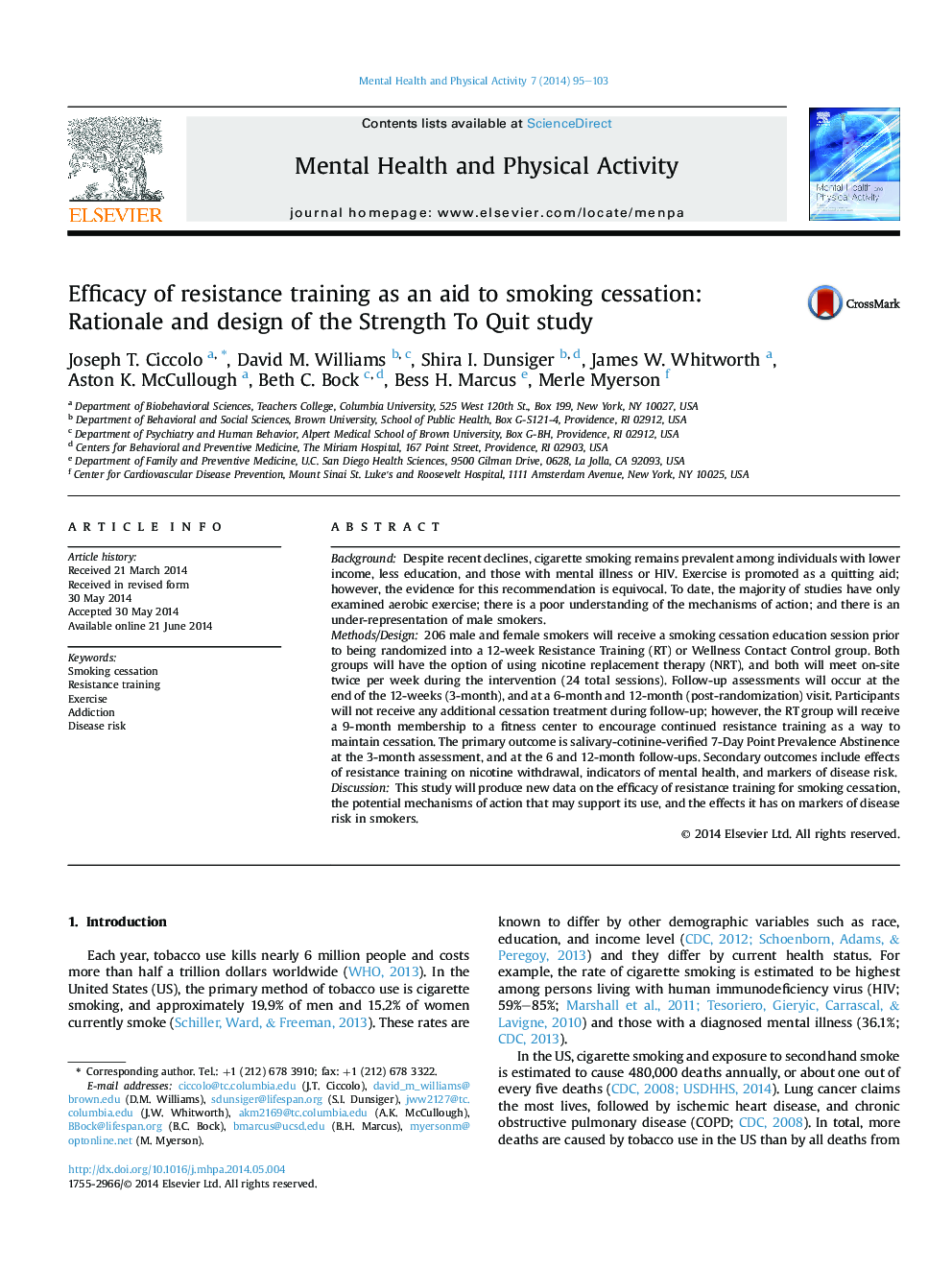| کد مقاله | کد نشریه | سال انتشار | مقاله انگلیسی | نسخه تمام متن |
|---|---|---|---|---|
| 913546 | 918325 | 2014 | 9 صفحه PDF | دانلود رایگان |
• Tobacco use remains the leading worldwide preventable cause of death.
• Smoking rates remain high among certain groups (e.g., those with mental illness).
• The research on the efficacy of exercise to enhance smoking cessation is equivocal.
• The effects of resistance training in smokers have not been adequately tested.
BackgroundDespite recent declines, cigarette smoking remains prevalent among individuals with lower income, less education, and those with mental illness or HIV. Exercise is promoted as a quitting aid; however, the evidence for this recommendation is equivocal. To date, the majority of studies have only examined aerobic exercise; there is a poor understanding of the mechanisms of action; and there is an under-representation of male smokers.Methods/Design206 male and female smokers will receive a smoking cessation education session prior to being randomized into a 12-week Resistance Training (RT) or Wellness Contact Control group. Both groups will have the option of using nicotine replacement therapy (NRT), and both will meet on-site twice per week during the intervention (24 total sessions). Follow-up assessments will occur at the end of the 12-weeks (3-month), and at a 6-month and 12-month (post-randomization) visit. Participants will not receive any additional cessation treatment during follow-up; however, the RT group will receive a 9-month membership to a fitness center to encourage continued resistance training as a way to maintain cessation. The primary outcome is salivary-cotinine-verified 7-Day Point Prevalence Abstinence at the 3-month assessment, and at the 6 and 12-month follow-ups. Secondary outcomes include effects of resistance training on nicotine withdrawal, indicators of mental health, and markers of disease risk.DiscussionThis study will produce new data on the efficacy of resistance training for smoking cessation, the potential mechanisms of action that may support its use, and the effects it has on markers of disease risk in smokers.
Journal: Mental Health and Physical Activity - Volume 7, Issue 2, June 2014, Pages 95–103
